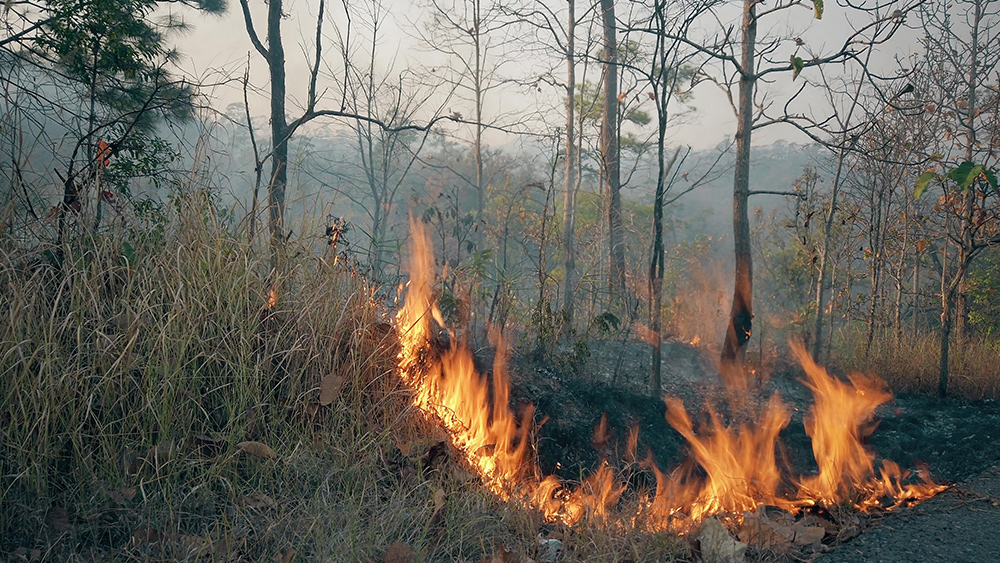 Parler
Parler Gab
Gab
- A Georgia family is suing Merck, alleging a former plant exposed a pregnant worker to toxic chemicals.
- The lawsuit claims this prenatal exposure caused both of her daughters to develop rare pediatric brain cancers.
- One daughter, Saville Sullivan, died in 2023 at age 26 after her cancer returned.
- The complaint accuses Merck of knowing the risks but failing to warn employees or provide protective equipment.
- The case is framed as a broader challenge to corporate accountability and workplace safety for pregnant women.
The alleged toxic environment
The heart of the lawsuit is the Merck Flint River Plant in Albany, Georgia, which operated from 1952 until its closure in 2007. The facility manufactured blockbuster drugs like Zocor and Prilosec, processes that the complaint alleges involved handling and releasing a “toxic soup” of chemicals. Court documents list substances including benzene, toluene, formaldehyde, methanol and dichloromethane (DCM)—several of which are recognized as carcinogens or linked to birth defects. The lawsuit asserts that these chemicals were released into the air, soil and water through routine operations, spills and waste disposal over the plant's entire operational lifetime. It claims Merck “knew, or should have known” these substances posed serious risks, particularly to pregnant workers and their developing fetuses, yet failed to provide adequate warnings, protective equipment, or ventilation.A family’s unthinkable tragedy
Colleen Sullivan worked at the Flint River Plant from 1993 to 2005 in human resources roles that required her to move throughout the facility. During this time, she gave birth to two daughters, Saville in 1997 and Lilia in 1999. The family’s attorneys state she was never informed of the potential toxic exposure or directed to use personal protective equipment. In 2016, the unimaginable occurred: both sisters, then young adults, were diagnosed with rare forms of pediatric brain cancer just three weeks apart. While Lilia underwent surgery and radiation, Saville faced a Stage 4 diagnosis that required chemotherapy and extensive rehabilitation. After a period of remission, Saville’s cancer returned in early 2023. She died on October 10, 2023. The lawsuit posits that the in-utero exposure to Merck’s chemicals is the direct cause of the cancers that ravaged the sisters.A pattern of corporate conduct?
This case does not exist in a vacuum. It echoes a troubling history for Merck, notably the Vioxx scandal. In 2004, the company was forced to pull its painkiller Vioxx from the market after it was revealed the drug significantly increased the risk of heart attacks and strokes—risks the company was aware of while aggressively marketing it. The Flint River Plant was closed in 2007 as part of a global restructuring in the wake of the Vioxx fallout. Furthermore, environmental assessments by both the U.S. Environmental Protection Agency and Georgia’s Department of Natural Resources confirmed the presence of contaminants, including toluene and DCM, in the soil and groundwater at the plant site after its closure, validating concerns about the facility's environmental legacy. For critics of large pharmaceutical corporations, this lawsuit paints a picture of a company with a repeated pattern of prioritizing production and profit over transparent safety protocols.The broader implications for accountability
The attorneys representing the Sullivan family frame the lawsuit as “more than a case — it’s a wake-up call.” It challenges fundamental practices of how industrial corporations manage hazardous materials and safeguard their workforce, especially vulnerable populations like pregnant women. The suit brings multiple counts against Merck, including negligence, gross negligence and wrongful death, seeking both compensatory and punitive damages intended to punish the company and deter similar conduct in the future. Key allegations in the complaint include:- A failure to warn employees about the risks of toxic chemical exposure.
- A failure to provide necessary safety equipment and adequate ventilation systems.
- Allowing known carcinogens and teratogens to permeate the work environment.
- Causing continuous and unknowing exposure that led to devastating health outcomes.
A call for justice and change
As the Sullivan family awaits Merck’s formal response to the complaint and a potential jury trial, their case stands as a stark narrative of corporate power, personal tragedy and the search for accountability. It underscores a chilling reality for many industrial employees: that the air they breathe at work could carry consequences that span generations. For a public increasingly wary of large pharmaceutical companies and industrial environmental practices, this lawsuit amplifies a critical demand for transparency and responsibility. The outcome will be closely watched, as it has the potential to set a significant precedent for how the legal system addresses the profound and lasting impact of toxic exposure on the most vulnerable. Sources for this article include: ChildrensHealthDefense.org BeasleyAllen.com AlbanyHerald.comAAP urges caution on LEUCOVORIN use for autism amid rising parental interest
By Patrick Lewis // Share
Breaking the “doom loop”: Scientists identify brain pattern preceding negative thought spirals
By Willow Tohi // Share
The unseen warning: How a fading sense of smell signals a failing heart
By Ava Grace // Share
Calcium propionate: What you need to know about the preservative in your bread
By Laura Harris // Share
Walking 5,000 steps a day could delay Alzheimer’s progression by years, study finds
By Patrick Lewis // Share
Governments continue to obscure COVID-19 vaccine data amid rising concerns over excess deaths
By patricklewis // Share
Tech giant Microsoft backs EXTINCTION with its support of carbon capture programs
By ramontomeydw // Share
Germany to resume arms exports to Israel despite repeated ceasefire violations
By isabelle // Share










